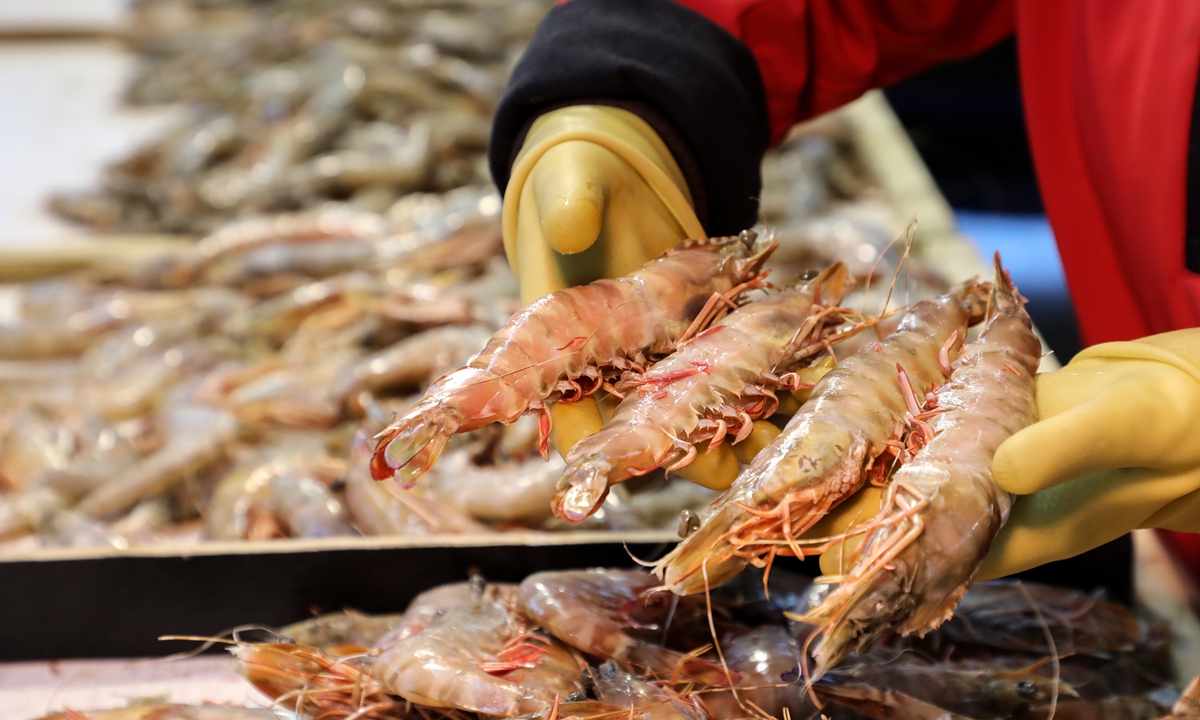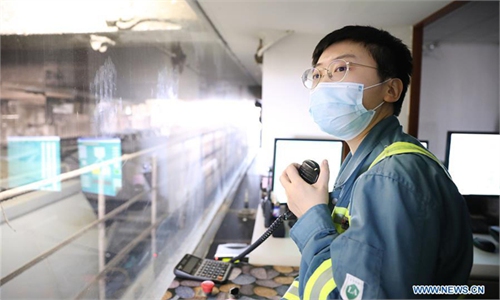Imports may carry coronavirus: expert
Dalian residents must provide negative test results before leaving amid new cluster infection

File photo:VCG
Chinese health experts warned that packages from abroad, such as food and drugs, may contain coronavirus regardless of whether they were transported in cold chain, and enhance viral tests of imported products at all ports are necessary after Northeast China's coastal city Dalian reported a new COVID-19 cluster linked to a seafood processing company.
Dalian, which declared a "wartime mode," asked residents not to leave the city, and that those who intend to leave must provide negative nucleic acid test results within seven days before traveling, the Dalian health commission said on Friday.
The city recorded nine COVID-19 cases from Thursday until 3 pm on Friday, as well as 27 asymptomatic ones, after a 58-year-old man working at a seafood processing company tested positive on Wednesday, breaking the city's record of no COVID-19 cases for 111 days.
The health commission said on Friday that most cases in the fresh outbreak were largely linked to the Dalian Kaiyang Seafood Company. The man was engaged in the processing and cold storage of imported and domestic aquatic products in the company.
All the seafood company's stores have been closed in Dalian, and the Global Times reporter found that the company's online stores in several e-commerce platforms also suspended business on Friday, and all products were removed from its shelves.
Although the source of the virus was still unknown, Dalian's new cluster has triggered public concerns over the safety of imported products.
Jin Dongyan, a professor at the School of Biomedical Sciences of the University of Hong Kong, told the Global Times on Friday that it's possible that imported products, including drugs and food, carried coronavirus on their packages.
Although the virus lives longer in cold chains compared to warmer conditions, we cannot rule out the possibility that the virus is still alive after the imported products arrive in China, Jin said.
Thousands of employees at meat processing companies in the US and Europe have been infected with coronavirus since April, and employees of British retailer Marks & Spencer in Hong Kong were found infected in April, triggering concerns that food imported from the UK may bring virus to Hong Kong.
Jin suggested that the General Administration of Customs further step up tests on imported products.
The administration began mass testing of cold food imports at ports in June after coronavirus was found on a chopping board used to cut imported salmon at the Xinfadi market in Beijing in early June.
Dalian government has urged widespread disinfection, the launch of COVID-19 prevention and control inspections in key areas including shopping malls, wholesale markets and cold-chain warehouses, and nucleic acid testing for employees working in those key areas, according to a city government meeting on Thursday. Dalian announced it would test more than 190,000 people across the city, and 18 experts dispatched by the national health commission have arrived in Dalian.
Neighboring Heilongjiang Province also reported two close contacts of confirmed patients in Dalian on Friday, and the two have been put under medical observation, the Heilongjiang government said.
The provincial government advised local residents not to go to Tianshan district in Urumqi, Northwest China's Xinjiang Uygur Autonomous Region, and Ganjingzi district in Dalian. Both regions reported fresh coronavirus infections.


